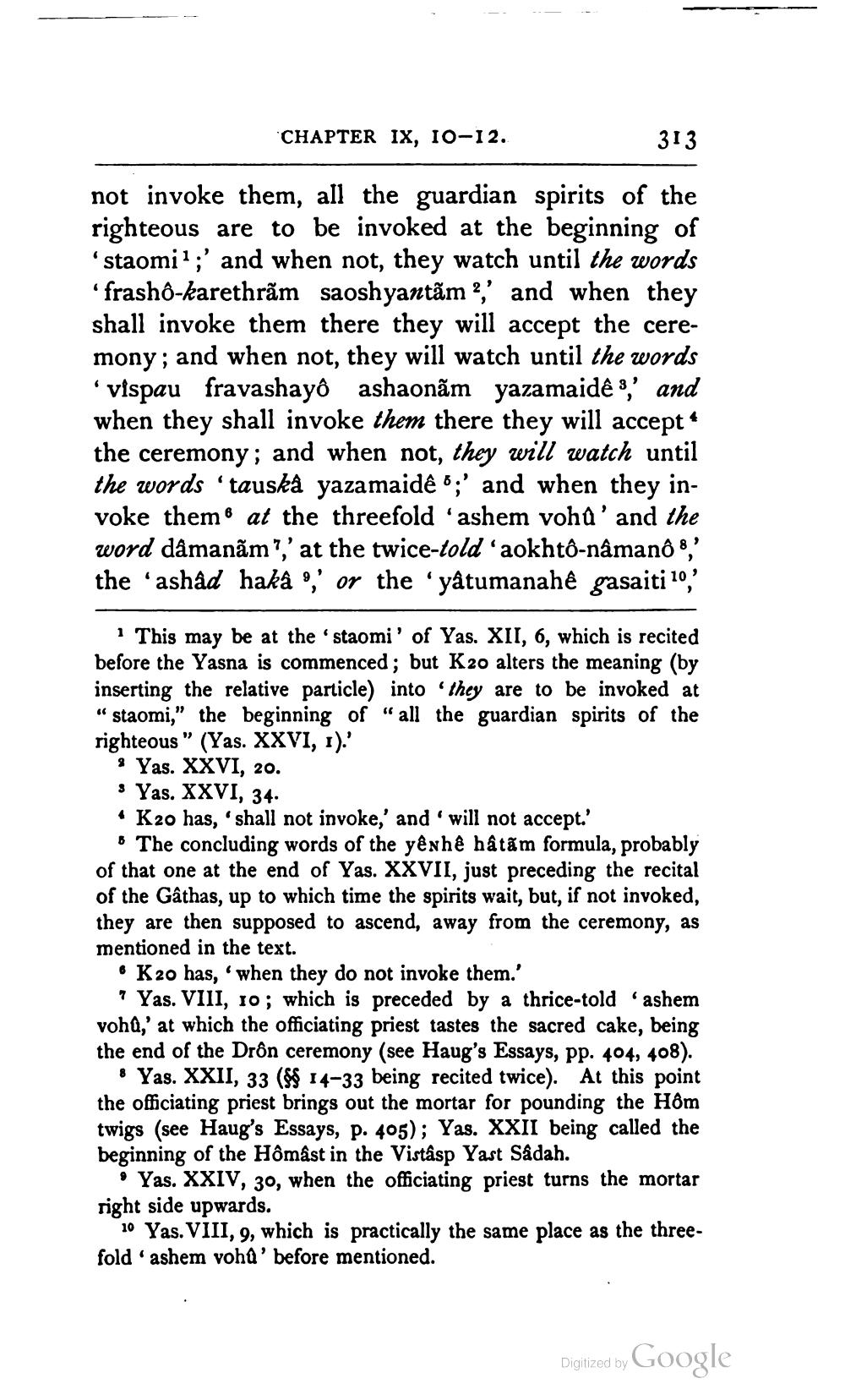________________
CHAPTER IX, 10-12.
313
not invoke them, all the guardian spirits of the righteous are to be invoked at the beginning of 'staomi ? ;' and when not, they watch until the words 'frashô-karethrãm saoshyantãm ?,' and when they shall invoke them there they will accept the ceremony; and when not, they will watch until the words
vispau fravashayô ashaonãm yazamaides,' and when they shall invoke them there they will accept the ceremony; and when not, they will watch until the words 'tauskà yazamaidê b;' and when they invoke them at the threefold 'ashem vohd' and the word dâmanăm?,' at the twice-told 'aokhtô-nâmano 8,' the 'ashad haka 9,' or the 'gâtumanahê gasaiti 10,
This may be at the staomi' of Yas. XII, 6, which is recited before the Yasna is commenced; but K20 alters the meaning (by inserting the relative particle) into 'they are to be invoked at “staomi," the beginning of "all the guardian spirits of the righteous" (Yas. XXVI, 1).' 8 Yas. XXVI. 20.
Yas. XXVI, 34. • K20 has, shall not invoke,' and will not accept.'
• The concluding words of the yênhê hâtãm formula, probably of that one at the end of Yas. XXVII, just preceding the recital of the Gathas, up to which time the spirits wait, but, if not invoked, they are then supposed to ascend, away from the ceremony, as mentioned in the text.
. K20 has, when they do not invoke them.'
" Yas. VIII, 10; which is preceded by a thrice-told ashem voha,' at which the officiating priest tastes the sacred cake, being the end of the Drôn ceremony (see Haug's Essays, pp. 404, 408).
• Yas. XXII, 33 (&$ 14-33 being recited twice). At this point the officiating priest brings out the mortar for pounding the Hôm twigs (see Haug's Essays, p. 405); Yas. XXII being called the beginning of the Hômâst in the Vistâsp Yast Sådah.
Yas. XXIV, 30, when the officiating priest turns the mortar right side upwards.
10 Yas. VIII, 9, which is practically the same place as the threefold.ashem voha' before mentioned.
Digitized by Google




